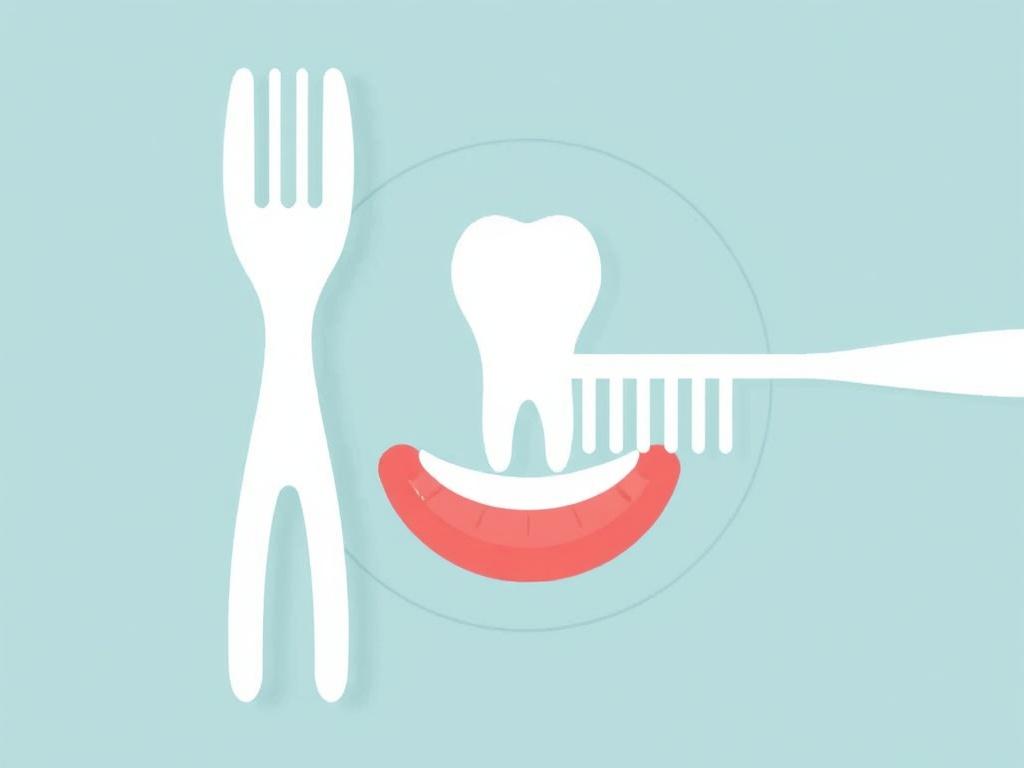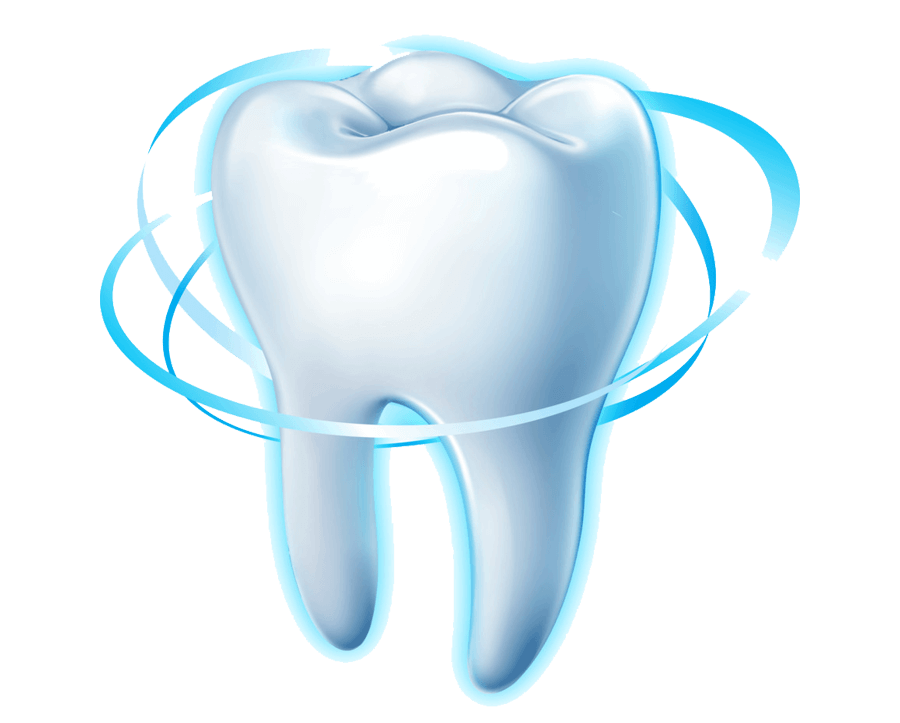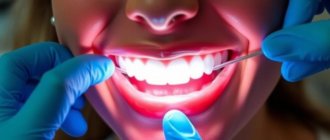Pregnancy is a time of excitement and change, but it can also bring unexpected challenges—especially when it comes to oral health. One of the most common dental issues many expectant mothers face is pregnancy gingivitis. This condition, marked by gum inflammation and bleeding, can cause discomfort and if left untreated, might lead to more serious problems. Understanding pregnancy gingivitis and how to prevent it is essential for every mom-to-be who wants to protect her smile and her overall health throughout this special time.
Содержание
- 1 What is Pregnancy Gingivitis?
- 2 Why is It Important to Prevent Pregnancy Gingivitis?
- 3 Common Signs and Symptoms of Pregnancy Gingivitis
- 4 Top Prevention Tips for Pregnancy Gingivitis
- 5 Foods to Include and Avoid for Healthy Gums During Pregnancy
- 6 Common Myths About Pregnancy Gingivitis
- 7 How to Talk to Your Dentist About Pregnancy Gingivitis
- 8 Home Remedies and Natural Aids for Pregnancy Gingivitis
- 9 Managing Stress and Pregnancy Gingivitis
- 10 Summary of Pregnancy Gingivitis Prevention Tips
- 11 When to Seek Immediate Dental Care
What is Pregnancy Gingivitis?
Pregnancy gingivitis is a form of gum disease that affects a significant number of pregnant women. It occurs due to changes in hormone levels, primarily increased estrogen and progesterone, which create an environment in the gums that’s more susceptible to plaque buildup and inflammation. These hormonal fluctuations can make your gums more sensitive, prone to swelling, redness, and bleeding during brushing or flossing.
Although pregnancy gingivitis typically develops during the second trimester, some women might notice symptoms earlier or later in their pregnancy. The good news is that pregnancy gingivitis is usually reversible with proper dental care, but if it’s ignored, it can progress to more serious gum disease conditions such as periodontitis. That’s why prevention and early management are key.
Why is It Important to Prevent Pregnancy Gingivitis?

Maintaining healthy gums during pregnancy isn’t just about avoiding discomfort or bleeding. Research suggests that untreated gum disease during pregnancy may be linked to complications such as preterm birth, low birth weight, and even gestational diabetes. Although the connections are still being studied, it’s clear that good oral hygiene plays a vital role in overall pregnancy health.
In addition, pregnancy gingivitis can affect your quality of life. Swollen and bleeding gums can make eating and speaking uncomfortable, increase sensitivity, and cause bad breath. Taking steps to prevent and manage pregnancy gingivitis ensures you can enjoy your pregnancy without unnecessary discomfort or health concerns.
Common Signs and Symptoms of Pregnancy Gingivitis
Recognizing pregnancy gingivitis early can make a huge difference in preventing its progression. Here are the most frequent symptoms to look out for:
- Red, swollen gums that appear tender to the touch
- Gums that bleed easily during brushing or flossing
- Persistent bad breath or a bad taste in your mouth
- Gums that feel sore or irritated
- Increased gum sensitivity to hot or cold foods
If you notice any of these symptoms, don’t ignore them. Consulting your dentist promptly can help you address issues before they worsen.
Top Prevention Tips for Pregnancy Gingivitis
Preventing pregnancy gingivitis revolves mostly around maintaining excellent oral hygiene and making smart lifestyle choices. Here are important prevention tips tailored specifically for pregnant women:
1. Maintain a Consistent Oral Hygiene Routine
Good oral hygiene is your first line of defense against pregnancy gingivitis. Brush your teeth gently but thoroughly at least twice a day using a soft-bristled toothbrush to avoid irritating sensitive gums. Don’t forget to floss daily to remove plaque and food debris between teeth where your brush can’t reach.
2. Use Fluoride Toothpaste and Mouthwash
Fluoride helps strengthen tooth enamel and can reduce the risk of cavities that may accompany gum disease. If approved by your dentist, using an antibacterial mouthwash designed for pregnant women can help control plaque-causing bacteria. Avoid mouthwashes with alcohol content, as they might be harsh.
3. Schedule Regular Dental Checkups
It’s often safe and recommended to see your dentist during pregnancy for regular cleanings and examinations. Professional cleanings can remove tartar and plaque buildup that you cannot eliminate at home. Inform your dentist about your pregnancy so they can tailor treatments to your needs.
4. Eat a Balanced and Nutrient-Rich Diet
What you eat impacts your gum health significantly. Consuming foods rich in vitamins C and D, calcium, and folic acid supports gum tissue repair and immunity. Avoid excessive sugary snacks and drinks, as they promote plaque buildup.
5. Stay Hydrated and Avoid Tobacco
Drinking plenty of water helps wash away food particles and bacteria, maintaining a clean oral environment. Additionally, if you smoke or use tobacco products, pregnancy is a critical time to quit, as tobacco use worsens gum health and pregnancy outcomes.
6. Manage Morning Sickness Carefully
For women dealing with morning sickness and frequent vomiting, stomach acids may erode tooth enamel and irritate gums. Rinse your mouth gently with a teaspoon of baking soda dissolved in water to neutralize acids after vomiting, and wait at least 30 minutes before brushing.
7. Use a Gum Massage Technique
Gently massaging your gums using your finger or a soft-bristled toothbrush can encourage blood circulation and reduce inflammation. This simple practice, done daily, can help soothe tender areas.
Foods to Include and Avoid for Healthy Gums During Pregnancy
Eating the right foods supports your oral health from the inside out. Here’s a table highlighting what to include and what to avoid:
| Foods to Include | Why They Help | Foods to Avoid | Why to Avoid |
|---|---|---|---|
| Leafy greens (spinach, kale) | Rich in vitamins A, C, and folic acid for gum repair and immunity | Sugary snacks and sweets | Promotes plaque formation and gum inflammation |
| Dairy products (milk, yogurt, cheese) | High in calcium, supports teeth strength and gum health | Soft drinks and carbonated beverages | Contains acids and sugar that erode enamel and harm gums |
| Citrus fruits (oranges, strawberries) | Contains vitamin C important for collagen production and healing | Sticky candies (caramel, gummies) | Stick to teeth long, increasing decay and gum irritation |
| Nuts and seeds | Provide essential minerals like magnesium and zinc | Caffeinated beverages | Can cause dry mouth, reducing saliva’s protective effects |
| Water | Flushes away bacteria and aids saliva flow |
Common Myths About Pregnancy Gingivitis
Misconceptions about pregnancy gingivitis often lead to unnecessary worry or neglect of dental care. Let’s debunk some common myths:
Myth 1: It’s Normal to Have Bleeding Gums in Pregnancy
While hormonal changes may make your gums more sensitive, bleeding is not something you have to accept. It signals inflammation that should be addressed with better oral care and a dental visit.
Myth 2: Dental Treatments Are Unsafe During Pregnancy
Most routine dental care and cleanings are safe at any stage of pregnancy with proper precautions. Waiting until after delivery might allow problems to worsen. Always inform your dentist about your pregnancy.
Myth 3: Pregnancy Gingivitis Will Go Away On Its Own After Pregnancy
Though symptoms may improve post-pregnancy due to hormonal normalization, untreated gum disease can cause long-lasting damage. Prevention and treatment during pregnancy are important.
How to Talk to Your Dentist About Pregnancy Gingivitis
Communication with your dentist is critical in managing oral health during pregnancy. When you schedule your appointment:
- Inform them that you are pregnant, including which trimester you are in.
- Discuss any symptoms such as bleeding, swelling, or discomfort.
- Ask about safe dental treatments during pregnancy.
- Request advice on oral care products suitable for expectant mothers.
- Bring up any concerns about morning sickness affecting your oral health.
Your dentist can create a personalized plan to keep your gums healthy and prevent pregnancy gingivitis complications.
Home Remedies and Natural Aids for Pregnancy Gingivitis

Alongside professional care, some gentle home remedies can provide relief and support gum health:
- Saltwater Rinse: Dissolve half a teaspoon of salt in warm water and rinse your mouth for 30 seconds. It helps reduce bacteria and inflammation.
- Aloe Vera Gel: Applying a small amount of aloe vera to gums can soothe irritation and promote healing.
- Tea Tree Oil Toothpaste: Using toothpaste containing tea tree oil can offer antibacterial benefits, but consult your dentist before use during pregnancy.
- Oil Pulling: Swishing coconut oil in your mouth for about 10 minutes may help reduce plaque, though it should complement, not replace, brushing and flossing.
Always use natural remedies as complementary methods and get your dentist’s approval, especially during pregnancy.
Managing Stress and Pregnancy Gingivitis
Stress is known to negatively impact immune function and can exacerbate inflammation, including gum disease. Pregnancy can be stressful emotionally and physically, so managing stress not only benefits your mental health but your oral health as well.
Simple stress management techniques such as deep breathing exercises, prenatal yoga, and adequate rest can improve your body’s ability to resist infections and fight gum inflammation. Prioritize self-care and reach out for support when needed.
Summary of Pregnancy Gingivitis Prevention Tips
To wrap up, here is a quick reference table summarizing prevention strategies:
| Prevention Tip | Why It Helps |
|---|---|
| Brush and floss daily | Removes plaque and prevents gum irritation |
| Use soft-bristled toothbrushes and fluoride toothpaste | Protections enamel, gentler on sensitive gums |
| Schedule dentist visits during pregnancy | Professional plaque removal and monitoring |
| Eat a balanced diet rich in vitamins | Supports gum repair and immune defense |
| Avoid sugary, sticky, and acidic foods | Reduces plaque formation and gum irritation |
| Stop smoking and limit caffeine | Improves circulation and saliva flow |
| Manage morning sickness carefully | Protects enamel and soothes gums |
| Stay hydrated | Keeps mouth moist and flushes bacteria |
When to Seek Immediate Dental Care
While prevention is best, some situations call for urgent dental attention during pregnancy. Contact your dentist promptly if you experience:
- Severe gum pain or swelling that interferes with eating
- Gums that bleed uncontrollably or pus around teeth
- Loose teeth or changes in bite
- Signs of infection such as fever with gum symptoms
Early treatment can prevent complications and protect both you and your baby.
Conclusion
Pregnancy gingivitis is a common but manageable condition that every expectant mother should be aware of. The good news is that with proper prevention tips—such as consistent oral hygiene, regular dental visits, balanced nutrition, and lifestyle adjustments—you can keep your gums healthy throughout your pregnancy journey. By staying proactive and consulting your dental care providers, you ensure a comfortable, vibrant smile that supports your overall health and your baby’s well-being. Remember, taking the time to care for your oral health during pregnancy isn’t just about your smile—it’s an important part of nurturing your entire body during this beautiful life stage.






